

Action Renewables began working on EU projects over ten years ago. During that time, we have either been partners of or been lead-partner in 13 projects, with 28 different partners from 14 different countries; ranging from the Faroes and Iceland in the very far North, to The Azores, Madeira and Tenerife, in the South. EU projects operate a ‘triple helix’ partnership principle: Not for Profit organisations, Government Organisations and Academia. More recently, private sector organisations have been accepted as well.
We have gained enormously in terms of insight, research and learning from being part of EU projects. We also believe that Northern Ireland has gained a lot in terms of understanding what other countries are doing and being able to demonstrate to other countries what we are doing, on all energy related matters.
To name a few, below are some of the projects that we have either been or are currently partners of:
REDAWN aims to foster the adoption of hydropower energy recovery technology in built water networks in the Atlantic Area (AA).
The project will develop an adequate institutional, social and technological environment to foster greater resource efficiency in water networks, including:
The water industry is the 4th most energy intensive sector in the Atlantic area, responsible for significant contributions to climate change and reductions in competitiveness due to associated costs.
REDAWN aims to improve the energy efficiency of water networks through the installation of innovative micro-hydropower (MHP) technology. This technology will recover wasted energy in existing pipe networks across irrigation, public water supply, process industry, and waste-water network settings.
The REDAWN project brings together 15 partners from 5 countries around the Atlantic coast working towards greater efficiency in water networks. It is a three-year project enabled by financial assistance from ERDF funds of the Interreg Atlantic Area programme. The project will complete in Spring 2020.
contact us
The Batterie project started in 2012 and finished in 2014. At that time electric vehicles were really very new, and not many would have been seen on our roads. The Batterie project was designed to help local and regional government, to help the community make the shift from carbon intensive fuel to greener more sustainable forms of fuel. And the number one reason the public were giving for not making the switch (surprisingly it was not the cost) was a thing called ‘range anxiety’. In other words people were concerned that they would not be able to make a journey for fear of running out of battery power. To alleviate that anxiety we developed a journey planning tool which allows EV owners to plan a journey from A to B and understand where to charge and for how long. The tool automatically routes drivers to rapid charge points, which generally take about 20 minutes for a full charge. The tool is still available to be used at egomap.eu.
The project was Atlantic Area, so involved partners from NI, GB, RoI, Portugal, Spain, France and the Netherlands. It had a value of €3.4m and there were ten partners involved. Action Renewables developed the project, submitted it and was the Lead Partner for the full three years.
contact us
REPUTE stands for ‘Renewable Energy Public Transport Enterprise’, and as that name suggests it was all about renewable energy in public transport. Like BATTERIE it was an Atlantic Area project, but it was smaller in size, partnership and duration. Running for just 1.5 years and with a value of €1.5m and just 7 partners, it focussed on trying to help public transport operators understand how to use greener more fuel efficient forms of transport: i.e. electric / hydrogen or biofuel. Aside from writing reports and making suggested policy changes, the partners took a roadshow across the Atlantic Area Region, on a bus….. It was very popular and very successful. Like BATTERIE, Action Renewables wrote the project, developed the partnership and were the Lead Partner.
The Renewable Community Empowerment for Northern Territories (RECENT) Project aims to do exactly what the project name implies – encourage rural and dispersed small communities to take control of their own energy needs and develop renewable energy solutions. This will help reduce the community’s reliance on external energy sources and hopefully make them less susceptible to varying prices.
There are three key outcomes to the project and Action Renewables is providing important input to each – an online Virtual Learning Campus, a Policy Influencer Programme and a Mentoring Programme by collaborative work with the partners IRRI, Scotland; Jokkmokk, Sweden; University of Oulu, Finland and Clar ICH, Ireland. The Virtual Learning Campus will follow the style of those used by many educational establishments and allow the project to share information with anyone wishing to learn more about how to develop a community led energy project even after the project ends.
The mentoring programme will also be a fantastic resource for those wishing to deliver their own project with access to experts from across Europe allowing for the transfer of ideas and knowledge to other regions.
contact us
Action Renewables is acting as the project Communications Leader and taking responsibility for providing several outputs including our regular Newsletters and publicising multiple other publications that can all be accessed by visiting the project website at http://recent.interreg-npa.eu/.
Action Renewables has also hosted events in rural areas of Northern Ireland promoting the project and seeking partners within the region to work with. A further series of Roadshows is also due to be held towards the end of the project. The project commenced in September 2015 and draws to a close in August 2018.
Sustainable integration of renewable fuels in local transportation (SEAFUEL) aims to make use the renewable resources across the Atlantic Area to power the local transport fleet and support the shift towards a low-carbon economy. The project will use the expertise and infrastructure of the partners in renewable energy, namely solar, wind and marine. Currently there is no tried and tested efficient method to store excess energy created by renewables. SEAFUEL plans to investigate the viability of converting the excess energy generated into hydrogen and demonstrate the potential use of hydrogen as a fuel to be used by local transport authorities. Success of the project will promote a sustainable transport system that can be adopted by other Atlantic regions.
Action Renewables will produce a “tool kit” that will allow a non-partner organization to simply take the outputs from SEAFUEL and develop a business model in their own region. Central to the success of SEAFUEL will be a desire of transport operations, indeed all stakeholders in public transport systems wanting to become involved in the exploitation of the SEAFUEL model. Central to that will be the development of a business model to demonstrate that can happen (or not).
contact us
The business model will be supported by a business plan, which will identify the resources to reach its goals.
Action Renewables will also promote and run a series of seminars over the course of the project with each region hosting one. A series of at least 5 world class case studies based upon a full assessment of all regions within Europe and also on a global scale will also be produced.
The WARES project covered - Scotland, Ireland, Finland, Northern Ireland, Norway
1. Created RE technology selection guides (decision making flow charts) to guide communities towards RE technologies (both heat and electricity) appropriate to their situation
Created a Development Process guide/plan, to guide communities through the steps towards development (after selecting appropriate technology)
2. Assessed all potential RE Finance Models – and how they were being utilised in partner regions
Assessed the partner regions for skills/knowledge in all RE techs
3. Created a Community stakeholders RE training course & post-training impact assessment
4. Completed feasibility studies for a GAA club assessing WT and PV installations
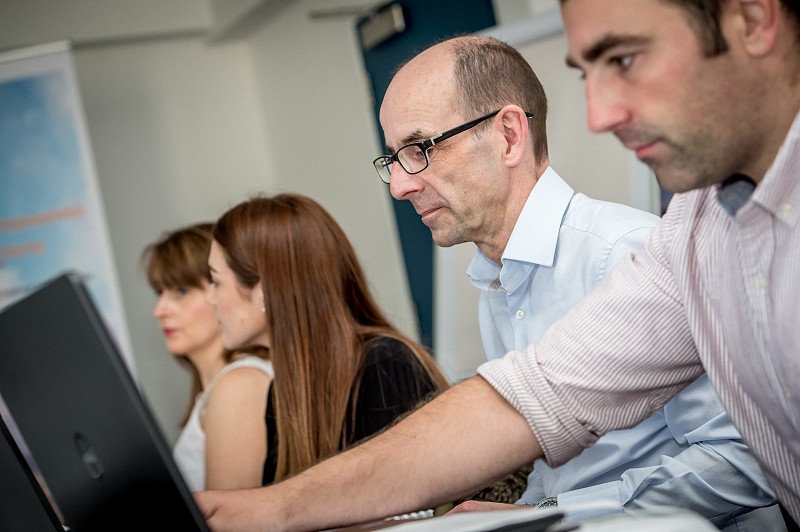
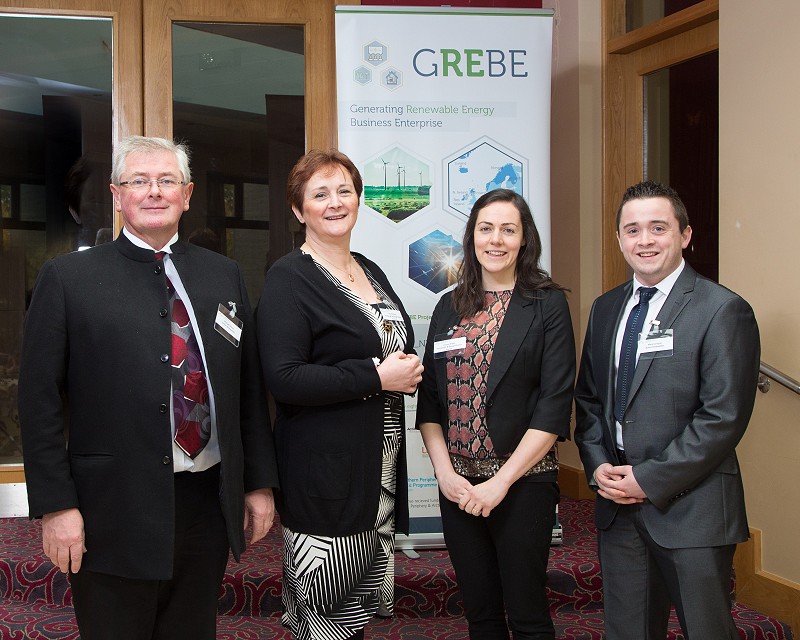
What is GREBE?
(Generating Renewable Energy Business Enterprise)
GREBE will focus on the challenges of peripheral and arctic regions as places for doing business and help develop renewable energy (RE) business opportunities provided by extreme conditions. It will support successful development of SMEs and start-ups in this sector through analysis of advanced RE options, expert business mentoring, transnational models of successful growth strategies, policy analysis and information on funding mechanisms for businesses and support agencies.
Action Renewables
Within the GREBE project, Action Renewables are responsible for work package 3, which is based upon ‘Policy & Funding Mechanisms’. The main aim of this work package is to provide information on all the existing policies and business support mechanisms for Northern Ireland and all other partner regions.
Below are three good reasons
